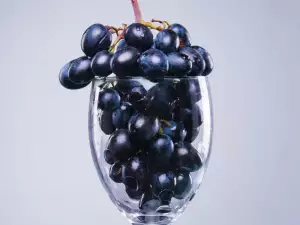Vanadium is a micronutrient that ensures and simultaneously improves the occurrence of metabolic processes in the human body.
Vanadium salts imitate insulin action by activating the transportation of amino acids, proteins and carbohydrates directly to the muscles, thereby increasing their volume and density, stimulating their growth and endurance.
As such, supplements with vanadium are preferred by athletes who need to gain muscle mass.
Benefits of Vanadium
Vanadium is still not that well studied but some of its properties are undeniably positive. This mineral is required for proper body functioning.
Vanadium has been proven to prevent the accumulation of cholesterol in the blood vessels and therefore, heart problems. It's thought to play a role in energy production for the body. Vanadium helps introduce proteins and amino acids directly into the muscles.

According to some studies, vanadium plays a role in creating bones via several processes in the body. It is thought to slow the processes of aging.
Vanadium salts, which are chemical compounds, imitate insulin action very well. Many studies are being done in this regard. It is thought to affect glucose tolerance.
The salts of this micronutrient help transport amino acids, proteins and carbohydrates directly to the muscles, increasing their volume and density.
When used in combination with chromium, vanadium affects mineral deficiency in people suffering from diabetes and hypoglycemia. Hands down, the most important function of vanadium is preventing the formation of bad cholesterol, in this way improving overall cardiovascular system function.
Sources of Vanadium
The primary sources of vanadium are vegetables and seafood. Dill, olives, radishes, various types of meat, vegetable oil and whole grains foods are also rich in vanadium.
Other good sources of vanadium are black pepper, mushrooms and parsley. Last but not least, you can procure vanadium from delicious corn.

Deficiency of Vanadium
Deficiency of vanadium is linked to cardiovascular and kidney disorders, as well as impaired reproductive abilities. Serious conditions such as diabetes, obesity, increased levels of cholesterol and triglycerides, hypoglycemia are seen when there is a shortage of vanadium in the body. There is also increased occurrence of the formation of cavities, cough, sore throat, chest pain.
Clinical profiles and lab testing are key in diagnosing vanadium deficiency. Treating this condition requires changes in diet.
There's no need to take it in the form of supplements because a balanced diet completely satisfies the body's daily needs for this mineral.
Dangers of Vanadium
Recommended daily values of vanadium are 30-50 mg. Large doses of vanadium, taken in the form of food supplements, are hazardous to health. They affect blood sugar levels and can be toxic.
For this reason, taking additional quantities of vanadium is not recommended for people suffering from hypoglycemia, hyperglycemia and insulin resistance.
High doses of vanadium have been shown to cause diarrhea, loss of appetite, slowed growth and muscle development.









